A Guide to Types of Seeds and Their Benefits
Edible seeds are highly nutritional, contain useful micro elements, and can become a perfect addition to the main dish.
5-Minute Crafts made a shortlist of the most popular seeds and decided to tell you about their benefits.
Chia seeds
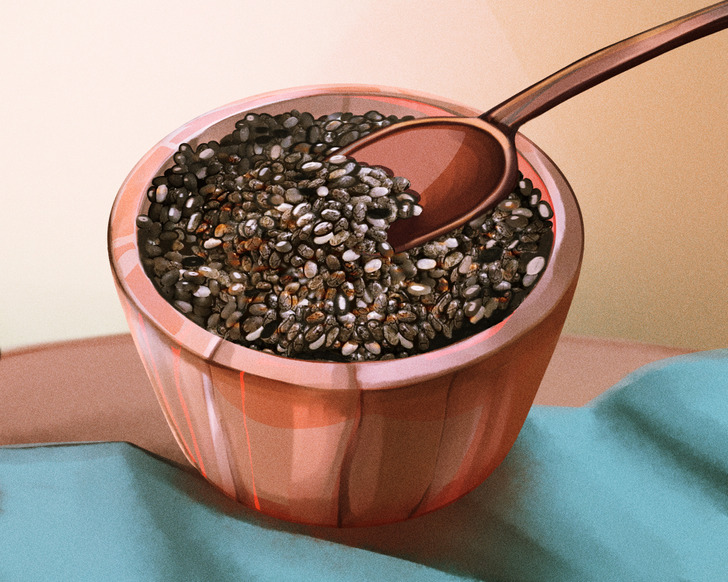
Chia seeds are black, gray, or white in color with a diameter of around 0.08 in. The seeds are hygroscopic and are capable of absorbing up to 12 times their weight in liquid. When soaked, each seed develops a mucilaginous coating that gives chia-based drinks and smoothies a gel-like texture.
Composition: Chia seeds are a source of omega-3 and omega-6 polyunsaturated fatty acids, B vitamins, thiamine, niacin, riboflavin, folic acid, and minerals such as iron, magnesium, phosphorus, and zinc. Chia seeds are also rich in fiber and vegetable proteins.
Benefits:
- Chia seeds are rich in calcium, magnesium, and phosphorus, which have a positive effect on bone health.
- Chia seeds may be cardioprotective and may lower blood pressure.
- Research shows that chia seeds may be beneficial for overweight and obese patients, as well as people with type 2 diabetes.
- Chia is rich in fiber, which is good for gut health.
Culinary uses: Chia seeds can be added to smoothies, muesli, and bakery; they can be eaten with yogurt for breakfast. Ground chia seeds can also be used instead of eggs in bakeries, including cakes.
Flaxseeds
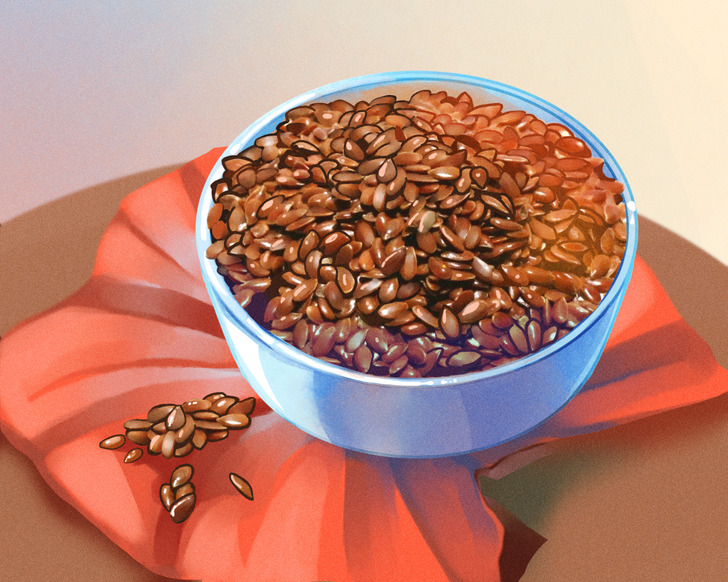
Flaxseeds have a brown or golden hue and a soft, slightly nutty tinge. The taste of the darker seeds is a bit sharper, and the taste of golden seeds is softer.
Composition: Along with other components, flaxseeds include vitamin B1, copper, manganese, magnesium, phosphorus, omega-3, omega-6, and omega-9 acids, fiber, and lignans — substances that act as antioxidants and cardioprotectors.
Benefits:
- Flax seeds have a positive effect on the digestive system. They can help people with diarrhea and constipation.
- These seeds can be part of a weight loss diet. The fiber in them suppresses food cravings and promotes weight loss.
- Flaxseeds can effectively lower blood pressure.
- These seeds are good for skin, hair, and nails.
- Due to the fiber and lignans in the composition, regular consumption of flaxseed can reduce blood cholesterol levels.
Culinary uses: Flaxseeds can be added to salads, yogurts, smoothies, cereals, soups, and pastries. Like chia seeds, ground flaxseeds can be used as an egg substitute.
Poppy seeds
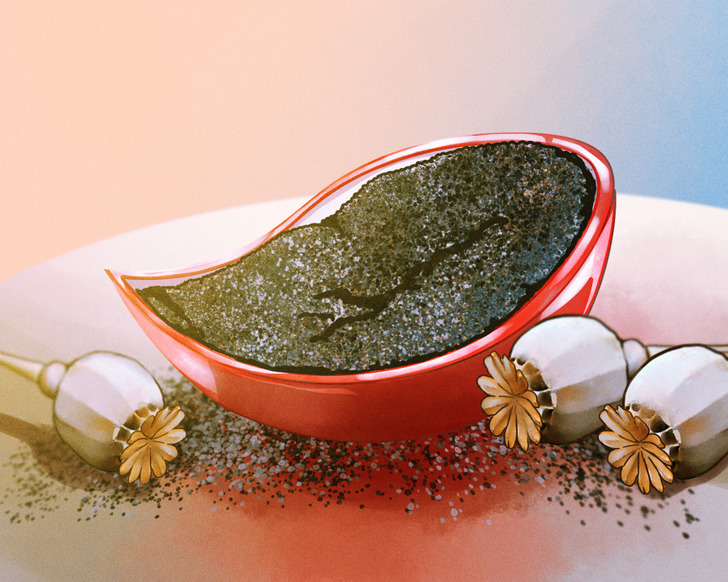
Poppy seeds are small, less than a millimeter in length, black seeds with a soft nutty taste. They are kidney-shaped and have a pitted surface.
Benefits: Poppy seeds contain vitamins C and E, B vitamins, and minerals such as manganese, magnesium, calcium, copper, phosphorus, omega-3, and omega-6 acids.
- Poppy seeds can speed up metabolism and improve the recovery process of the body.
- The antioxidants and linolenic acid in their composition can help maintain an even complexion and reduce skin inflammation.
- Thanks to minerals such as calcium, magnesium, and zinc, poppy seeds can positively affect the health of the hair and scalp.
- The fiber in poppy seeds stimulates intestinal motility and thus can help people suffering from constipation.
- Poppy seeds are rich in zinc. This microelement can have a positive effect on the immune system.
Culinary uses: Poppy seeds are used as a flavoring ingredient in bakery, desserts, and fruit salads. Crushed or ground seeds are also often added to pancake dough, strudel, and cakes; poppy oil is often added to salads.
Pumpkin seeds
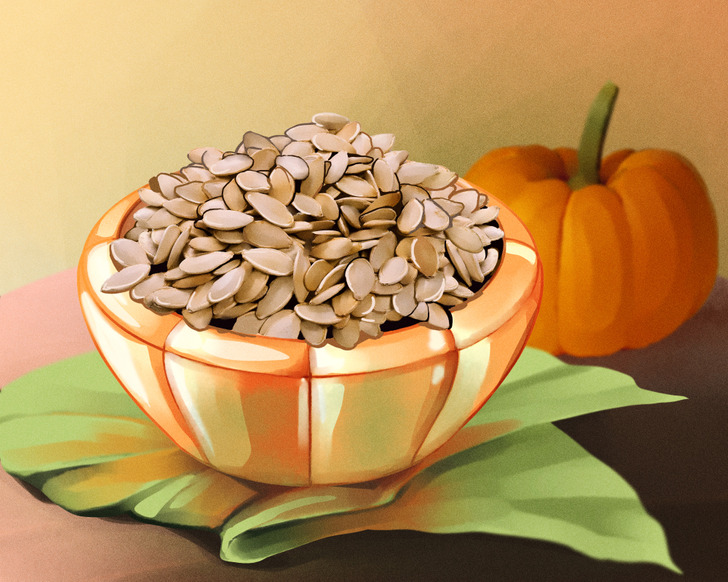
Pumpkin seeds are flat asymmetrical seeds with a white outer coating and a green core. They have a sweetish taste with a slightly nutty note.
Composition: Pumpkin seeds are an excellent source of protein, dietary fiber, niacin, iron, zinc, manganese, magnesium and phosphorus, and various vitamins. They also contain riboflavin, sodium, potassium, folic and pantothenic acids.
Benefits:
- The hypoglycemic properties of pumpkin seeds may help people with diabetes control their blood sugar more effectively.
- Thanks to alpha-linolenic acid in their composition, pumpkin seeds can be useful for the prevention of cardiovascular diseases.
- Pumpkin seeds are rich in antioxidants.
Culinary uses: Non-roasted pumpkin seeds can be used as a healthy and tasty addition to soups, sandwiches, and salads. Roasted ones can be served as an independent snack. Ground pumpkin seeds can be added to flour when baking bread, while the oil of pumpkin seeds can be used as a salad dressing.
Sunflower seeds
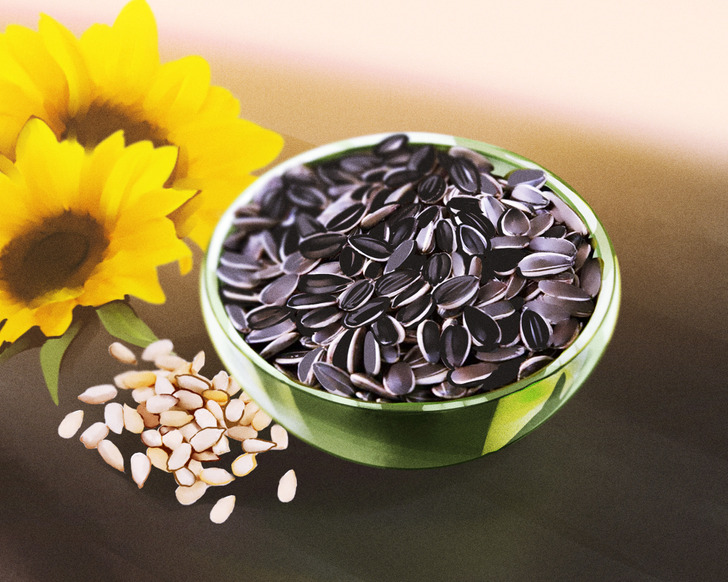
Sunflower seeds have quite a dense dark shell and a white core. After roasting they get a nutty tinge and a crunchy texture.
Composition: Sunflower seeds are high in calories and contain a large amount of protein, dietary fiber, vitamins B and E. They are sources of minerals such as magnesium, manganese, phosphorus, iron, and zinc.
Benefits:
- Sunflower seeds contain phytosterols that can lower blood cholesterol levels.
- Thanks to vitamin E in their composition, sunflower seeds can have an anti-inflammatory effect.
- Vitamins and minerals in the composition of sunflower seeds provide good support for the immune system. Zinc and selenium contribute the most.
- The high protein content in the seeds, as well as the B vitamins in their composition, can increase the energy level of the body.
Culinary uses: Sunflower seeds are widely used in the bread-making process, they are added to salads, yogurts, stir-fry, and other dishes. Sunflower oil is universal and can be used both for frying and as a salad dressing.
Sesame seeds
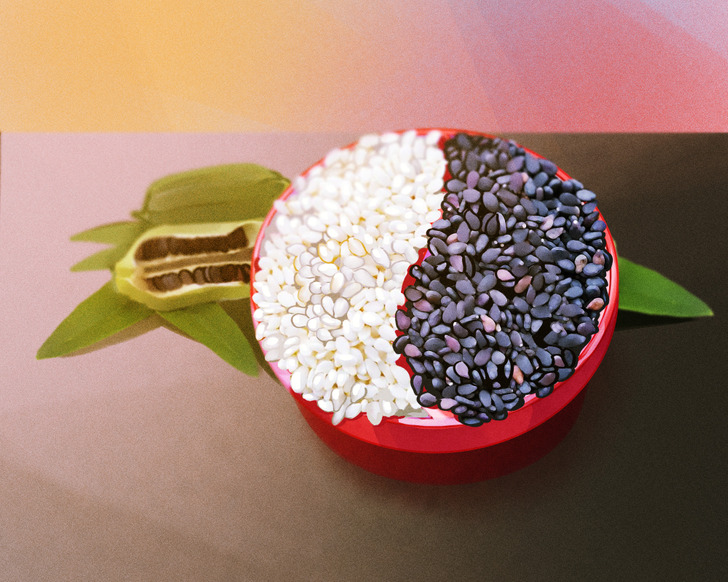
There are 2 types of sesame seeds. White seeds have a tender taste and can be used universally. Black ones have a more saturated taste and a brighter aroma.
Composition: Sesame seeds are an excellent source of lignans, including sesamin, protein, omega-3, and omega-6. The seeds also contain minerals such as copper, calcium, manganese, magnesium, iron, and B vitamins.
Benefits:
- Sesame seeds help the cardiovascular system and have a positive effect on blood cholesterol levels.
- They possess antioxidant properties thanks to phenols in their composition.
- Calcium, phosphorus, and zinc in the seeds help maintain bone health.
- Sesame seeds can positively affect the digestive system.
- Sesame seeds contain a sufficient amount of zinc, which affects the quality of the skin and hair.
Culinary uses: Sesame seeds can be used as sprinkles for bakery, added to salads and Asian dishes. Crushed or ground seeds are used to make sweets (for example, halva), while sesame oil is added to various dishes.